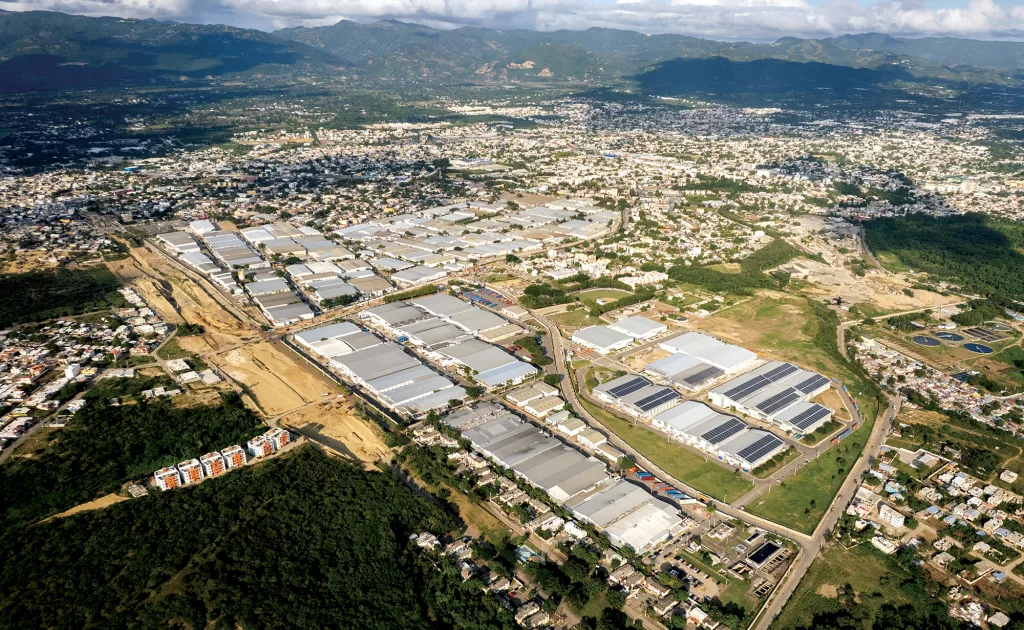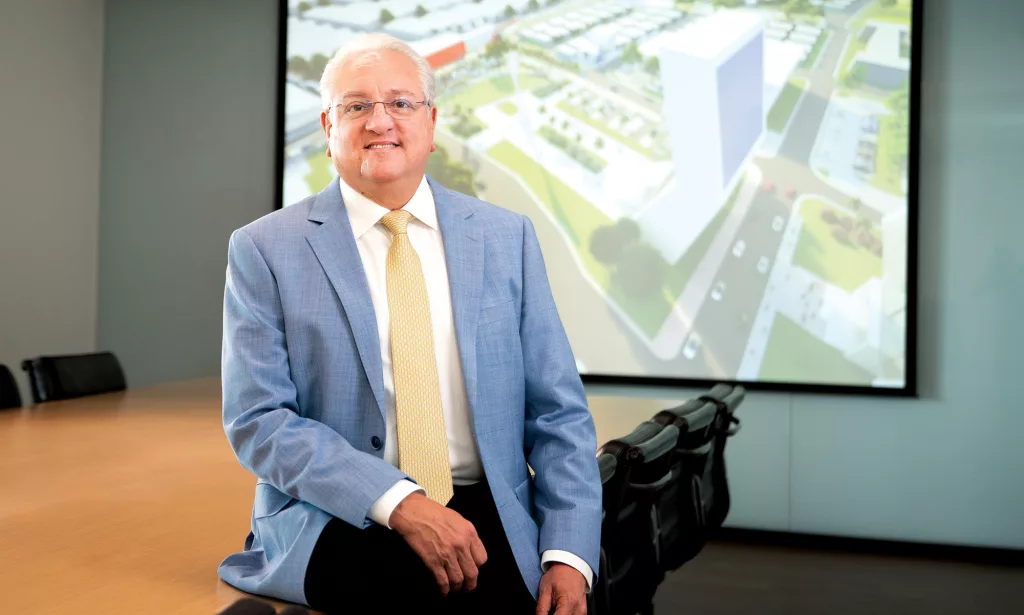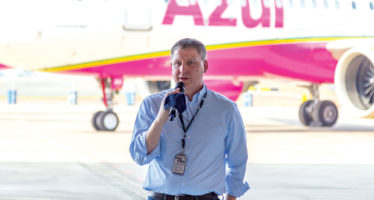Sustainable Development A Legacy of Innovation: CZFS’s 50-Year Milestone
Under the dynamic leadership of Miguel Lama, a visionary entrepreneur, Santiago is poised to become an international investment destination.

The Latin American firm, known as the Santiago Free Trade Zone Corporation (referred to as CZFS by its Spanish acronym), has refined its business model to coincide with a significant milestone: celebrating its 50th year of operations.
Throughout its first half-century, CZFS has cultivated a business and industrial ecosystem in Santiago de los Caballeros, Dominican Republic, emphasizing competitiveness, profitability, and a people-centric approach.
Managing an industrial park at full capacity is possible thanks to outstanding infrastructure focused on environmental sustainability. The corporation functions via a productive system of innovative production methods and industry specialization. Every development initiative in the city of Santiago – and the surrounding region – has been boosted by the economic and social programs promoted by the corporation.
It offers employment and recruitment-service units through CEGESTA, quality health care through MÉDICA, specialized education for the industry via CAPEX, and promotes a solidary economy with Cooperativa La Aurora; providing its members with financial services and education on how to manage their finances. It also boasts one of the largest solar panel farms in the region and has provided a firefighting substation and other public services.
The robust RSC plan features programs in health and wellness, environment, education, and entrepreneurship. “Progressive education has been a genuine commitment by our staff,” says founder and president Miguel Lama. “This allows us to move on to a second step: fostering a culture of ongoing progress and constant change to meet and adapt to increasingly sophisticated production styles.”
The CZFS was founded in 1974, as a successful pioneer of public-private management, whose mission is to create and attract investments that generate jobs and potential economic and social development for the city of Santiago and the Northern Region.
The CZFS owns and manages the Víctor Espaillat Mera Industrial Park (PIVEM), one of the pioneers in the country and vastest free zone park in the country. Most of the origin of these investments corresponds to the United States, with a share of 65 percent over more than 80 companies installed, with a current population that already exceeds 22,000 people.
All this has provided the company with a sound and solid base to comfortably continue its expansion over the next 50 years.
CZFS highlights the specific benefits of Santiago as a Lat-Am investment hub, from the design of the first Smart City in the Dominican Republic to the free-trade zones model developed locally.
“We’re shaping the integration process of issues such as attracting talent and high-level professionals,” says Lama.
“The design of an urban system is in line with the expectations of professionals and investors for the next three decades. This new design harmonizes housing, environmental and recreational quality, with a modern offer of health, multilingual, technical, and specialised education.”
All this aligns with the introduction of electronics, robotics, digitalization, chemical research, and industry investments.
Santiago Business Model
Evolving from traditional low-cost, light manufacturing to advanced assembly and development processes is seen as the way ahead for the next decade.
The Corporation is placing Santiago on the radar of new international investors and turning the city into the business hub for the Americas. The aim is to become the primary destination for manufacturing advanced technical goods such as microchips.
Economic Trends
Over the years, CZFS has shown flexibility while maintaining its mission and core values. Innovation has become part of its corporate DNA, allowing it to adjust to economic and global shifts with agility and efficiency.
“Our 50 years of experience and adaptation are tested by our firm decision to take a quantum leap,” says Lama, “taking professionals, companies, and the city to an unprecedented level. This is not a simple process of organic growth. Santiago and the country must accelerate, to seize this great moment provided by a national and international favourable political and economic environment.”
Entrepreneurs, professionals, workers, politicians, and citizens “must play their part in upholding this commitment,” he says, “especially when they compare us with other economies that in recent years have been diminished due to threats to their democracies, and political, social and economic difficulties that have impoverished their countries”.
Lama, president of the Board of Directors of the CZFS, says there are plans to create an investment centre “of international reference in competitiveness, profitability, and technology transfer”. This, he adds, is based on “a culture of innovation and the respect for human values”.
The Víctor Espaillat Mera Industrial Park has developed flexible, environmentally friendly buildings to meet the demands of an evolving and technologically demanding industry.

President: Miguel Lama
The Man at the Top
Miguel Lama has an extensive record of community involvement, participating in social, educational, and environmental support organizations and in development and business institutions such as the American Chamber of Commerce of the Dominican Republic.
He is a member of the Board of Directors of the ISA University, the Association for Development (APEDI), Banfondesa, Grupo M (CODEVI), UNO Call Center, the National Free Zone Council (CNZFE), and Plan Sierra, Metropolitan Hospital of Santiago (HOMS).
He was the founder and the first president of the Strategic Development Council of the City of Santiago (CDES), preparing the Strategic Plan of Santiago. He was appointed as president of the Chamber of Commerce and Production of Santiago. Since 2010 he has been president of CZFS.
You may have an interest in also reading…
‘The Madman’ Takes Charge: Javier Milei Inaugurated President of Impoverished Argentina
In his inaugural address to the nation on Sunday, delivered on the steps of the Argentina’s domed neoclassical congress, President
David Neeleman: The High-Flyer with ADHD – How a Restless Mind Revolutionised Air Travel
David Neeleman is not a typical airline executive. Founder of five carriers, he pairs relentless entrepreneurial drive with a knack
A New Generation of Banker
Brazilian Alessandra França, by no means fits the banking stereotype at only 26 she has already, established a bank for the

















































































